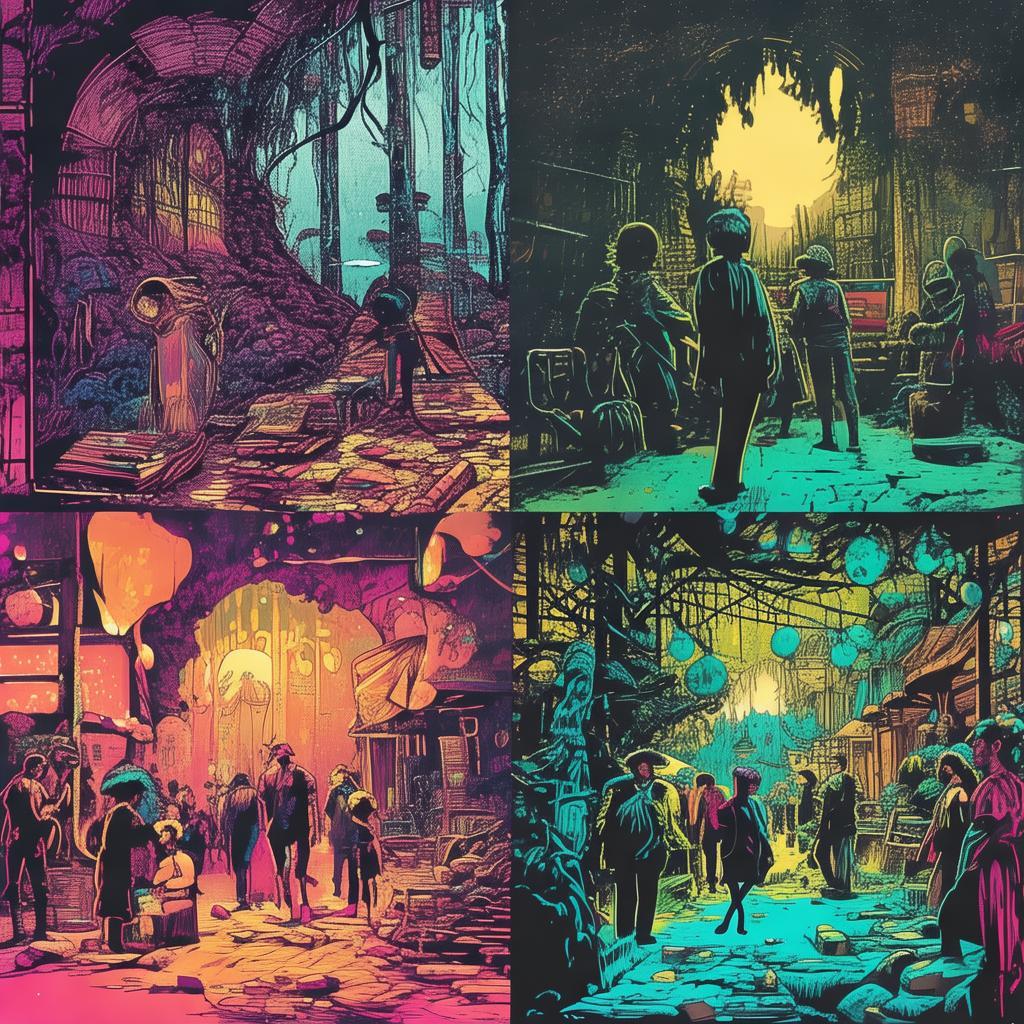Whispers of the Past: A Journey Through Time and Memory
In the bustling city of New York, amidst the towering skyscrapers and the relentless hum of the metropolis, lived a man named Alexander. A philosopher by trade, Alexander had spent his life exploring the depths of human thought, searching for the answers that would bring meaning to his own existence. His latest project, a book titled "The Philosopher's Journey: A Tale of Modern Thought and Responsibility," was about to be published, and with it, he hoped to leave a lasting impact on the world.
One rainy afternoon, as Alexander sat in his cluttered study, he found an old, dusty journal hidden beneath a stack of ancient tomes. The leather-bound cover bore no title, and the spines were cracked with age. Intrigued, he opened it and discovered a series of cryptic entries that seemed to hint at a connection between the past and the present.

As he read further, Alexander realized that the journal contained the account of a time traveler named Elara, who had journeyed through time to learn about the consequences of her actions. Each entry chronicled her experiences in different eras, revealing the profound impact that even the smallest decisions could have on the course of history.
Driven by curiosity and a desire to understand the nature of memory and responsibility, Alexander decided to test the journal's authenticity. He closed his eyes and concentrated on the words, feeling a strange sensation as if he were being pulled through a vortex of time.
When he opened his eyes, Alexander found himself in a lush, green forest, the kind he had only seen in paintings or movies. He was dressed in period-appropriate attire, and around him, the world seemed to stand still. He had no idea how he had arrived or how to return.
Determined to find his way back, Alexander began to explore the forest. He stumbled upon a small cabin, where he met an old woman who seemed to know everything about him. Her name was Elara, and she explained that she had left the journal for someone who would understand its significance.
Elara revealed that the journal was a time-traveling device, and that it allowed its user to visit different points in history. She had used it to study the past and understand the present, and now, she believed Alexander was the one who could complete her journey.
As Alexander journeyed through time, he encountered various historical figures and events, from the signing of the Declaration of Independence to the rise of fascism in the 20th century. Each encounter offered him a glimpse into the lives of ordinary people, and he began to realize the profound impact that his own actions could have on the world.
In one particularly poignant moment, Alexander visited a concentration camp during World War II. He witnessed the suffering of the prisoners and the cruelty of the guards, and he felt a deep sense of responsibility for the role that humanity had played in such atrocities. This experience left him with a heavy heart, but it also inspired him to commit himself to the cause of peace and understanding.
As his journey continued, Alexander began to understand that the true power of the journal lay not in the ability to travel through time, but in the ability to confront one's own past and learn from it. He realized that the decisions he made in the present were the direct result of his experiences and that he could only change the future by changing himself.
One day, as Alexander stood on the edge of a cliff overlooking a bustling city, he felt a sudden jolt of realization. He understood that the journal had been a gift, a tool to help him confront his own demons and find the strength to face the future with courage and compassion.
With a deep breath, Alexander activated the journal and returned to his own time. He found himself back in his study, the journal still in his hands. As he closed the book, he felt a sense of peace and purpose that he had never known before.
Back in the modern world, Alexander began to apply the lessons he had learned from his journey. He became an advocate for social justice, using his platform to speak out against inequality and injustice. His book, now titled "Whispers of the Past: A Journey Through Time and Memory," became a bestseller, and Alexander's message resonated with readers around the world.
In the end, Alexander's journey through time had not only changed his own life but had also inspired others to confront their own pasts and commit to a better future. He had found the answers he had been searching for, and in the process, he had become the philosopher he always wanted to be.
✨ Original Statement ✨
All articles published on this website (including but not limited to text, images, videos, and other content) are original or authorized for reposting and are protected by relevant laws. Without the explicit written permission of this website, no individual or organization may copy, modify, repost, or use the content for commercial purposes.
If you need to quote or cooperate, please contact this site for authorization. We reserve the right to pursue legal responsibility for any unauthorized use.
Hereby declared.









